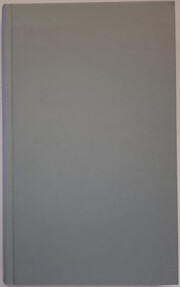

Click on a thumbnail to go to Google Books.
|
Loading... Die unsichtbaren Städte (edition 2007)by Italo Calvino (Author), Burkhart Kroeber (Übersetzer)
Work InformationInvisible Cities by Italo Calvino

Magic Realism (8) » 39 more 20th Century Literature (166) 1970s (16) Favourite Books (428) Books Read in 2021 (196) Short and Sweet (70) A Novel Cure (282) magic realism novels (25) Books Read in 2024 (2,660) Page Turners (70) Reiny (9) Unread books (418) 1,001 BYMRBYD Concensus (465) Read in 2016 (17) Cooper (74) Tall tales (2) My TBR (116) Biggest Disappointments (490)
  ) )So, I understand why some will read this and think, "this is the most pretentious drivel I have ever read in my entire life." I'm not sure they would be wrong, but I do know that I thoroughly enjoyed it and I think you will get exactly what you expect out of this book. To me, it was a reflection of my mental state and conjured a lot of thoughts and emotions about things completely unrelated. This is a book of philosophy. It is a book that is sometimes deep, but the depth can be an ocean or a puddle depending on how you read the short collection of Marco Polo describing cities that may or may not exist. Fascinating book. The 'novel' is made up of dialogues between Kublai Khan and Marco Polo interspersed with descriptions/ruminations on many cities Polo has seen/imagined. Some descriptions were more memorable than others. There is always the question as to what is real, if anything, considering the use of objects and topics not invented at Marco Polo's time. So the ruminations of the author cover cities as sights, desires, memory, signs, names and place. City chapters I particularly liked were Irene (a city seen from afar but never entered), Eutropia (a city of smaller cities where people change jobs and lives by moving to the next small city when they become weary of the first), and Octavia (a city built in a net suspended between two cliffs over a chasm). Lots of food for thought. You can read this story by the Italian fabulist Calvino on two different levels. Ostensibly a dialogue between Marco Polo and Kublai Khan in which the adventurer describes 55 cities he has visited in the empire to the emperor, you can try to focus on the unique physical aspect of each city as described. This is interesting and has led to many different artists creating visual interpretations of the cities as described in the book. But that's not really what the book is about. Each description of a city, 1-3 pages long each, takes one facet of the human experience and makes it the defining feature of that city. In Chloe, everyone is a stranger, no one ever greets anyone with recognition, and at each encounter with another person, one imagines a thousand different possibilities unfolding before quickly looking away. Perenthia was laid out in design to reflect the perfection of the firmament, to create heaven and utopia on earth, but gives birth to monsters. Octavia is suspended from a net stretched across a void between two huge mountains, buildings held up by being tied to the net above; life is less uncertain in Octavia, as inhabitants know the net will last only so long. Valdrada was built above a reflective lake, so that nothing that happens in the above ground Valdrada does not also happen in the Valdrada of the lake, and the inhabitants are so aware of their copied image that they take no action without taking special care of how that copied image will look (this book was published in 1972, well before Instagram!). Halfway through the book, Polo tells Kublai Khan that in describing each city he is really describing his home city of Venice, describing some aspect of that city. But he is also describing some aspect of humanity in each description of a city. As Kublai Khan tells him in one of the dialogues that are placed between descriptions of cities, "I hear, from your voice, the invisible reasons which make cities live, through which perhaps, once dead, they will come to life again." Polo replies, "Traveling, you realize that differences are lost: each city takes to resembling all cities, places exchange their form, order, distances, a shapeless dust cloud invades the continents. Your atlas preserves the differences intact: that assortment of qualities which are like the letters in a name." Humanity, in other words, is more similar than the differences suggested by maps and human constructions. More durable as well. Travelogues are interesting but what they tend to describe is not lasting. "Only in Marco Polo's accounts was Kublai Khan able to discern, through the walls and towers destined to crumble, the tracery of a pattern so subtle it could escape the termites' gnawing." It's a hopeful vision. no reviews | add a review
Belongs to Publisher SeriesArion Press (57) Biblioteca Folha (21) Biblioteca Sábado (28) Gallimard, Folio (5460) Keltainen kirjasto (127) — 7 more Is contained inIs abridged inWas inspired byHas as a studyAwardsNotable Lists
In a garden sit the aged Kublai Khan and the young Marco Polo - Mongol emperor and Venetian traveler. Kublai Khan has sensed the end of his empire coming soon. Marco Polo diverts his host with stories of the cities he has seen in his travels around the empire: cities and memory, cities and desire, cities and designs, cities and the dead, cities and the sky, trading cities, hidden cities. As Marco Polo unspools his tales, the emperor detects these fantastic places are more than they appear. No library descriptions found. |
Current DiscussionsNonePopular covers
 Google Books — Loading... Google Books — Loading...GenresMelvil Decimal System (DDC)853.914Literature Italian, Romanian & related literatures Italian fiction 1900- 20th Century 1945-1999LC ClassificationRatingAverage: (4.14) (4.14)
Is this you?Become a LibraryThing Author. |
||||||||||||||||||||||||||||||||||||||||||||||||||||||||||||||||||||||||||||||||||||||||||||||||||||||||||||||||||||||||||||||||||||||||||||||||||||